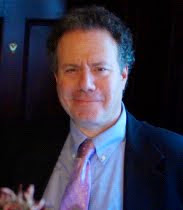Essence of Genius
“Genius” is a much-abused term, especially among the young. The young, in fact, abuse and overuse a great number of words and terms. For example, the word “awesome” connotes a thing or event that leaves a person wide-mouthed with awe, like a hurricane or a house-fire (or maybe a very significant other). Calling a cheeseburger “awesome,” may elevate the cheeseburger, but it deflates the word. A cold-blooded murderer or corrupt politician may indeed cause outrage in the community, but to call an excellent order of extra-hot Buffalo chicken wings “outrageous” stretches things a bit, don’t you think? The words “fabulous,” “fantastic,” and “phenomenal” are also widely overused. New word coinages that fit the hyperbolizing point would be more appropriate, and indeed more powerful. They could evolve with the seasons and generations, sprouting alternate grammatical forms, without compromising English. We’ve already suffered by our inability to use the excellent word “gay” in its original sense (“joyous,” “happy,” and especially, “lighthearted”); there is not yet a synonym that doesn’t pale in the face of the original. This is not a complaint, however, since the simple word gets good mileage now in its replacement role. I am also stimulated and amused by the recent semantic expansion of the term “dude,” a term that in my youth evoked the limited notion of a citified guest on a horse ranch.
But on to “genius,” that frequent synonym for other, lesser descriptors. Genius must transcend mere excellence. Innovation in itself is laudable and important, but it is not genius. A genius does more than please or stimulate us. A genius has the rare quality of synthesis: bringing disparate threads of our human experience together in a manner that ratchets up that experience. I like the word “ratchet,” and the connotation and standard I set here by using it is that the talented person may move, stimulate, please or agitate us, but the genius puts us through a process of significant and irrevocable growth.
I am a true lover of American music, a broad field indeed. Jazz is my standard, but my thoughts apply to all the other idioms. It is jazz, rather than the cheeseburger, that to me is truly “awesome,” (although having cheeseburgers around at a critical point in a late night jam session never hurt anyone). But there are two problems with jazz. Jazz buffs often fall prey to the notion that they are the elite when in fact it is the music itself that is elite. Jazz buffs are also overzealous in their attribution of the word “genius” to individuals rather than to the overall jazz colloquy. The greatest lights in jazz itself have always understood this distinction. Jazz, more so than many other art forms, is the child of many thousands of hearts and minds.
John Coltrane was a stimulator and an innovator, but to call him a “genius” does him a serious disservice. The key to my experience of Coltrane is the raw sensitivity of his playing. If Coltrane is playing on my car radio, I idle my car in the driveway until the piece finishes, even though this is not good for the engine. Miles and Monk get the same treatment. I am willing to concede that both press into the realm of genius, but I want to remember (and be grateful) that all these artists were workaday performers. If there is a true Shakespeare of jazz, it has to be Ellington. Yet even here, I hate to bandy about the term “genius.” In Ellington’s case you could also argue that the overused term “genius” qualifies as a demotion. I’d rather leave the vocabulary aside and let the music do the speaking.


0 Comments:
Post a Comment
<< Home